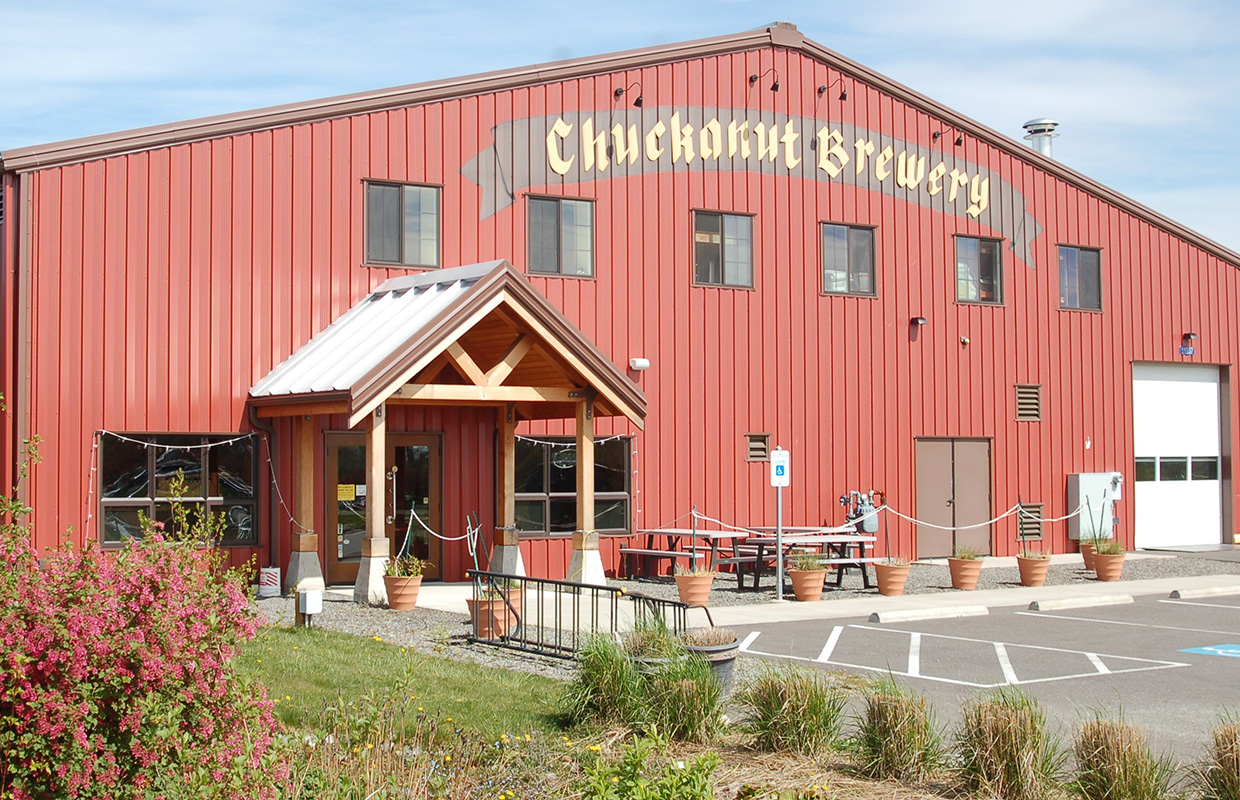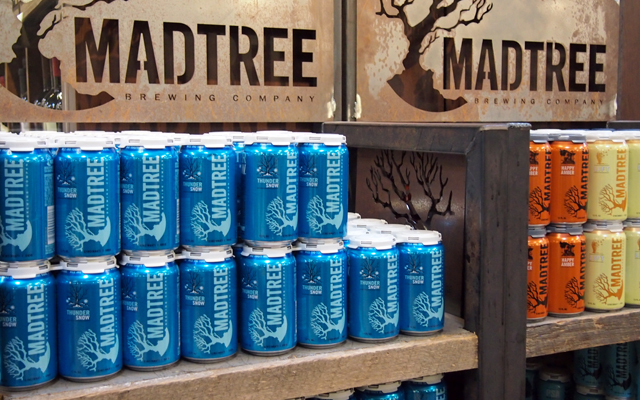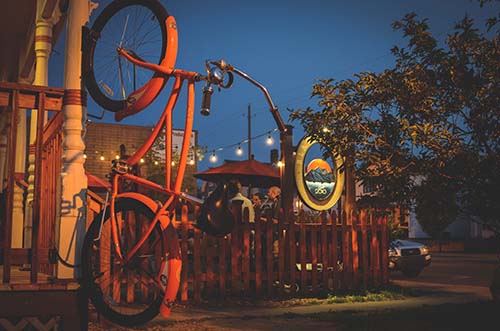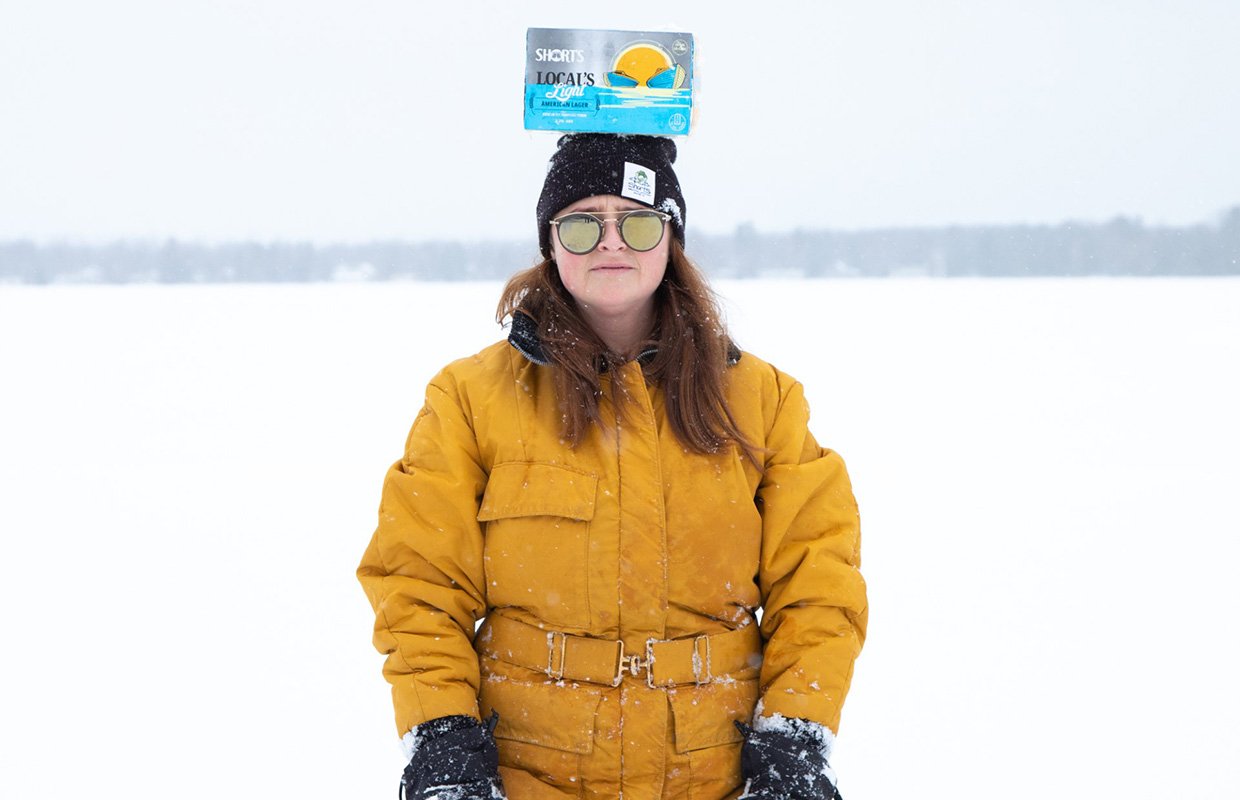
Function for nearly five years with two brewing hubs — its original home in Bellingham, Washington and a newer and larger production space in Burlington — Chuckanut is moving into one location while beefing up the ability to package more beer for the veteran Pacific Northwest Lager brewery.
In September, the brewery announced the impending closure of its brewpub (called North Nut) while moving its 10-barrel system and mobile packaging lines to the larger and newer production space about 30 miles south to pair with the 20-barrel facility (called South Nut).
Chuckanut began to dabble in packaging for both bottles and cans in 2020 and by 2021 it became clear that fans wanted to see more. Coupled with the sale of the original location by the owners of the Bellingham building, founder Mari and Will Kemper want to put everything under one roof for production and continue to use both brewhouses to create core brands on the larger system and smaller runs with the 10-barrel system so that a vast majority of brands can be packaged for to-go sales and pushing to retail. All of this will entail adding on to the current production space to add a second smaller brewhouse area, packaging lines, and a beer hall.
“We’re expanding with anticipation of getting a high-speed canning or bottling unit in place, however, what we’re doing is just maintaining and continually maintaining our small packaging capability,” said Will Kemper. “It enables our retail outlets to have those diversified product lines.
READ MORE: Chuckanut Beer Hall, P Nut, Opens in Portland
“If we just got rid of those small systems, then we wouldn’t be able to package up these other beers. A large production line is basically more suited for flagship or not too many product lines. But the fact that we have these small packaging operations enables us to have 10-11 beers on tap, well, these 10-11 beers, then people can come and take them away can or bottle because we have that small packaging capability.”
The biggest subtraction to the brewery’s business plan is the Kempers opted to not continue a kitchen like there was in Bellingham.
“We’ll have a taproom/beer hall … some kind of beer space, but we really wouldn’t want to go back to food again because it was very stressful and challenging for us,” fellow co-founder Mari Kemper said. “We want to make beer, we don’t want to have to deal with kitchens and equipment … we’re kind of perfectionists in what we do and it was too much of a challenge for the food part of it.
“It was really great but now it’s time to say goodbye.”
The brewery does plan to work with a neighboring restaurant to give consumers a chance to order and have delivery to the taproom. Will said that they are open to possibilities as far as partnerships with food trucks and local restaurants, “but our expertise and our focus is beer and brewing,” he said. “For us, we realize we should really narrow down what we do and do it as best we can.”
Along with consolidating where production is done, the brewery is looking to make an impact in the Portland, Oregon market by adding a 76-seat taproom which had plans to be in operation by mid-November.
A big part of the thought process there is that to-go service will be a part of sales there with kegs and packaging playing a role in the future success there.
“That’s one of the main reasons to be there,” Mari said. “A lot of times we don’t have enough packaged bottles or cans to sell to the distributor and the price we get to the distributor is way less than selling at retail out of our own building.
“We would have the availability to send kegs down to sell the people that have their kegerators or having a party or that kind of thing. I don’t think that is so available down in the Portland area. The to-go — we think — will be at least 50% of the sales.”




Be the first to comment